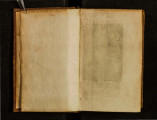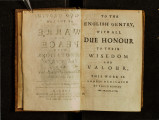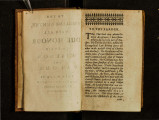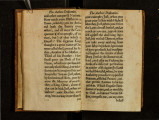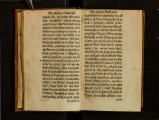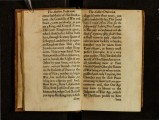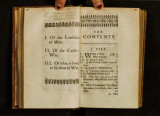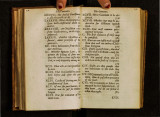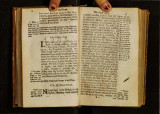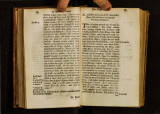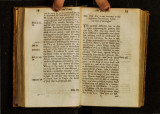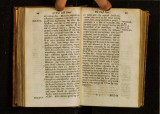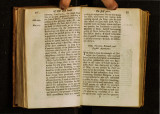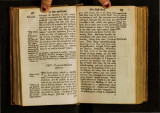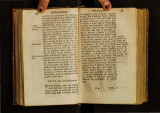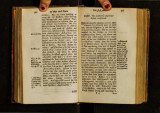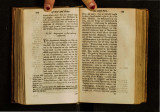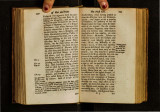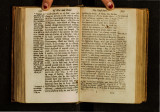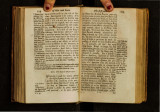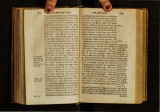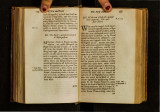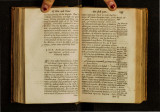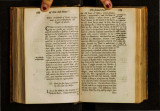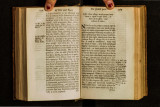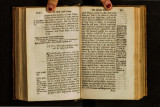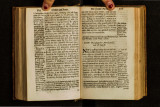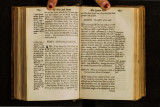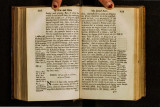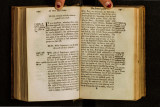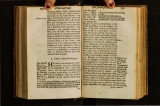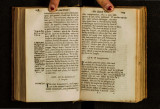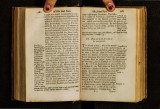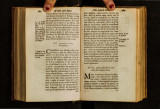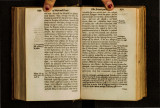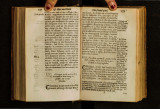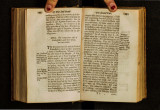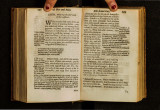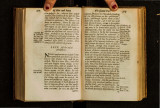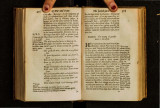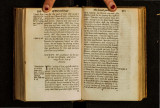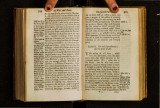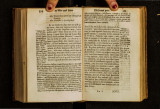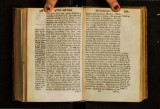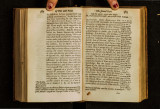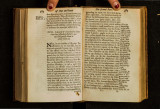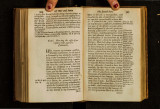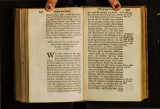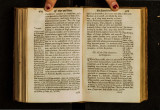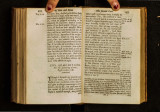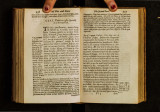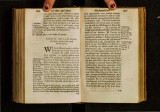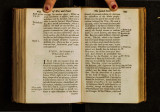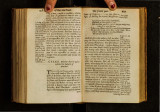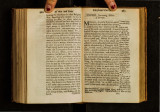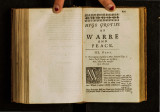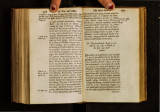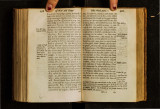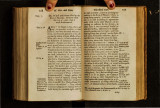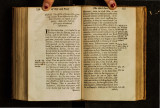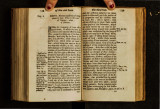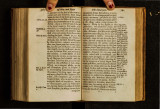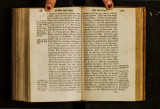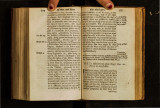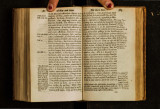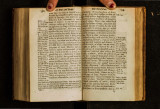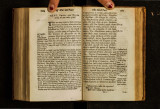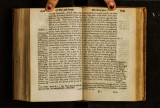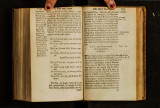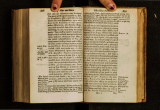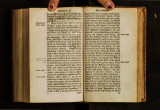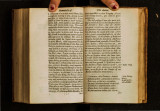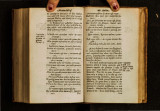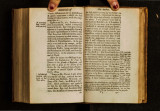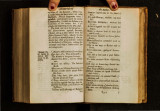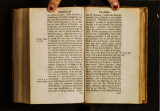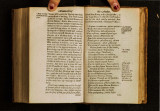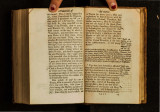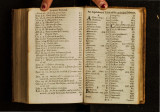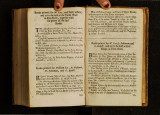| OCR Text |
Show S3~ ofWAr •nrl Pl4&e • Attguft.fib.l. wife, as S. eAuguftin * thought : (with de a:Juttemul what circum!tances this is true , is not tlotlnltJiuugm. ,A,d Pol- d · h ) b h 1 .13 • proper to eterm10e ere; . ut e may & 1s. alfo keep her lawfully._ Ulptan * , of a "* L . I · §.lieee. Seller,to whom 't:s lawfu1~ after appoinD', de pe:ic. & ted day to pour forth the wine : If yet , ' 11m· W1.t11d. faith he, when he may pour it fo rth , he doth it not , he is the more to be prai(cd. But [omewne a thing is called lawful, not wh1ch may be done withoUt viola. ting therulesofpiety and duty,buc which t Tertull. in among men is not iubjett unto punifl1- exlion. ad mentt.So,a.mong many people ,it: is lawful caft~tatem:Li- to commit fornicat1on:among the Laa deeentl< l .plt~~mdq~ monians and &fJjptians ·u was alio lawful teeinptJtSintJ;Oe . eI,,.b id11. - to an ea l . I n xn_,u z.n tt. 1s..: m we re::. d * : rr-h 1 . ere Omnialictnt, are Jome things not latl-dable by nature, fi.dnon omniA but gran.·edby Law,rM in the XII.Tables, ~oJ.•1tta d The Creditcrs might divid( the Debtors p~~~t~ s: ¥~ body amon._t[, them. But this Ggnificacion vtl•r1 nllj,'701 of the word' lawfot ll' is leis proper (as ;lbai ~.,.?-.t'i Cicero ob!erveth well in the fife of his Tuf· 'g'7i i~.tjt"'' c:sl~ms , (peaking of Cinna : To me,on the 1 r~f.~e 8~ Nee coptrary , he Jeemeth mtferab!e , not on!J f.mtt,{t.vindi- in that he did fuch things, but irJ that he '~dMIJ! JO_~i& Jo. behaved himfe ~f that it might be laW· fJIII&fJUid Q&tt: ful for him to do them : though indeed it f,.""!m:;:. u lawful for none to do ~mifl, but we erre t16anei11mmll11l tn our language , callmg tka~ )•m'fHl, trM_etm. Hierc: which u pe~mltted to ~eny one :·) 11ever· nym. ad Jovt· thelef; it is receive.d as when the fame ~ian. E.t I vtrt Cicero for 1?..._a!Jdri~ 'Po{fhtnhm Ehus be· }:~:~:ia. (~eaks the Judges; re ought to c'onfider' ~Lib, 2, '• s. what b~com11you ~not how mufh is /I.Pl· -- - · . . 0 f!'ht third P4rt~ 5:33 ful for yor4 :for if ye feelz. only what is law· ful, you may take away out of the City whom you pleafe. So, all chinos are faid to be lawful for· Kings , be~aufc they are *exempt from human punifhment s * · 'ln&D -, as we have faid ellwherere. But C /auditt~ •r~ "'"'' iAforming a King or Emperour riohtly faith: b . --*Have ;n your thought, *Cbud:?(.tt Not what you ma7 effeU , but what tibi quid lictAf~ JOU OUffht, {td quidftci/fo o dtcebit , De- And Mufonim t reproveth Kinos who ~uDrradt. l'b . ,r. t N;t_to ay, '7""'1. b ' e • J , 3· J. nis is /awfitl for me; not , & 5· Thts ttomes me. And in the fame fenfe we often fee opp0led , What is lawful , and What ought to be done, as by Seneca the Father * in his controverfies more * Cbntr.l. 4; rhan once t. a4. . t Ammian. . . Marcell. Sunt 1LJqua t]Nit ~etz non oporttt, etiam(i tictt.lib. 30. PHn. in epift. opo;·ttt qr~tt fun~ mhone{la, nnn quaji illicita,{ed quafi pudt71da vitarc.llh. S·. C1ce~o 1pfe orar. pro Bnlbo: E.~ cnim aliq11id qr~IJa non dporttat ttump /lett, Ide11_1 pro Milone, fas etfe ad naruram Jicerc: ad ltg~s refcrt. Er 1~ declamatione Patri.s , <l!!intiliani eft, Aliud tfft Jl4rA[pcltarc, alludJitftitiam ,Declam. 2. p. xxvu. ) . |




